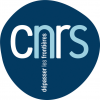Vous êtes ici : Accueil › International conference on "dissonant voices" in the climate change debate and workshop on representations
International conference on "dissonant voices" in the climate change debate and workshop on representations
07 mars 2013 - 08 mars 2013
Meudon, France
International conference organized within the project ENVIGLOB
"Challenging the 'climate consensus'. Perspectives from the social sciences and humanities to analyze 'dissonant voices' in the public debate on climate change"
"Contester le 'consensus climatique'. Regards croisés des sciences humaines et sociales sur les 'voix dissonantes' dans le débat public sur le changement climatique"
Conférence en anglais avec traduction simultanée en français
Conference outline
Climate change is one of the most important global challenges of our time, and scientists have firmly established the reality of the phenomenon, its man-made origins and the necessity to take mitigation and adaptation measures. Yet, like in other fields where political action is closely associated to scientific expertise, "dissonant voices" continue to challenge the mainstream view, obtaining more or less visibility in mass media in different countries and at different moments of the climate debate. How can we explain these phenomena? While research in social sciences has seen the emergence of a rich literature on "climate skeptics", "climate controversies" and "climate denial" lately, no common explanation seems to be able to encompass the specificities of national climate debates and the multiplicity of reasons to challenge "the climate consensus". This international conference succeeds to the workshop "climate controversies in the media" that we organized in September 2010 in Paris. It aims at confronting different theoretical approaches and methodologies, in order to determine what each approach can contribute to a more complete understanding of the phenomenon, what it helps to see and what are its dead angles.
Organizers: Stefan Aykut, Hélène Guillemot, Chantal Pacteau
Institutional support: Research Consortium Climate-Environment-Society (GIS Climat-Environnement-Société)
Résumé
Le changement climatique est un des problèmes globaux majeurs de notre temps, et les scientifiques ont solidement établi la réalité du phénomène, ses origines anthropiques et la nécessité de prendre des mesures d'atténuation et d'adaptation. Néanmoins, comme dans d'autres champs où l'action politique est intimement liée à l'expertise scientifique, des « voix dissonantes » continuent à se faire entendre, obtenant plus ou moins de visibilité médiatique selon les contextes nationaux et les phases du débat climatique. Comment expliquer ces phénomènes ? S'il y a aujourd'hui une littérature de plus en plus riche en sciences sociales sur les « climato-sceptiques », les « controverses climatiques » ou le « déni climatique », aucune explication commune ne semble en mesure de rendre compte des spécificités des débats nationaux et de la multiplicité des raisons pour contester le « consensus climatique ». Cette conférence internationale fait suite au workshop "controverses climatiques dans les médias" que nous avons organisé en septembre 2010 à Paris. Elle a pour objet de confronter différentes approches théoriques et méthodologiques, afin d'examiner comment chacune de ces démarches peut contribuer à une compréhension plus complète du phénomène, ce qu'elle permet de voir et quels sont ses angles morts.
Organisateurs : Stefan Aykut, Hélène Guillemot, Chantal Pacteau
Soutien institutionnel: GIS Climat Environnement Société
This conference will be followed by a workshop on representations (March 8 in the afternoon) organized by the Research Consortium Climate-Environment-Society (GIS Climat-Environnement-Société).
Workshop outline
Climate change has in recent years moved from being mainly a physical phenomenon to being simultaneously a political, social, cultural and ethical phenomenon. At present, both individual and collective attitudes and behaviour seem an equally serious challenge in the climate issue as scientific knowledge of the phenomenon itself. In this the various representations of climate change are crucial. The understanding of such representations, which would contribute to an improvement of the climate change knowledge base, calls for interdisciplinarity. With this as a starting point, the present workshop aims at generating fruitful discussions on different kinds of representations (linguistic, cognitive, cultural, social) and on the possibilities for cross-disciplinary collaboration.
Program
Click here to see the program.
Registration
Registration is free but mandatory
Click here to register
Access information
Click here to see practical information about how to come to Meudon.
For information, do not hesitate to contact us :
contact@gisclimat.fr
s.aykut@gmail.com
Document(s) joint(s) :







